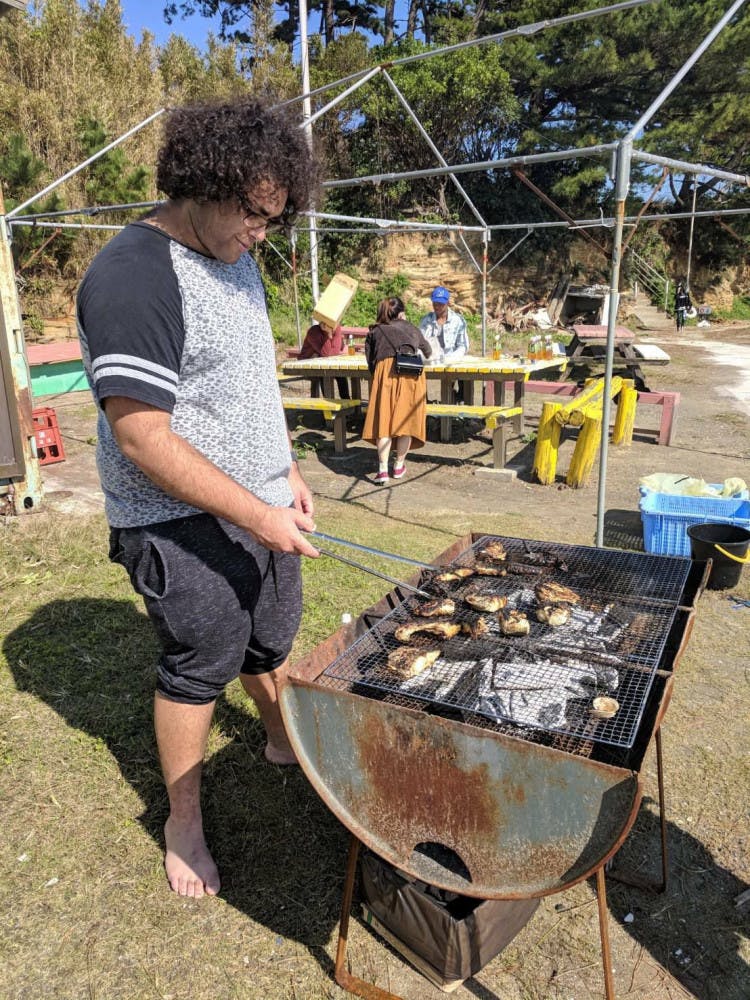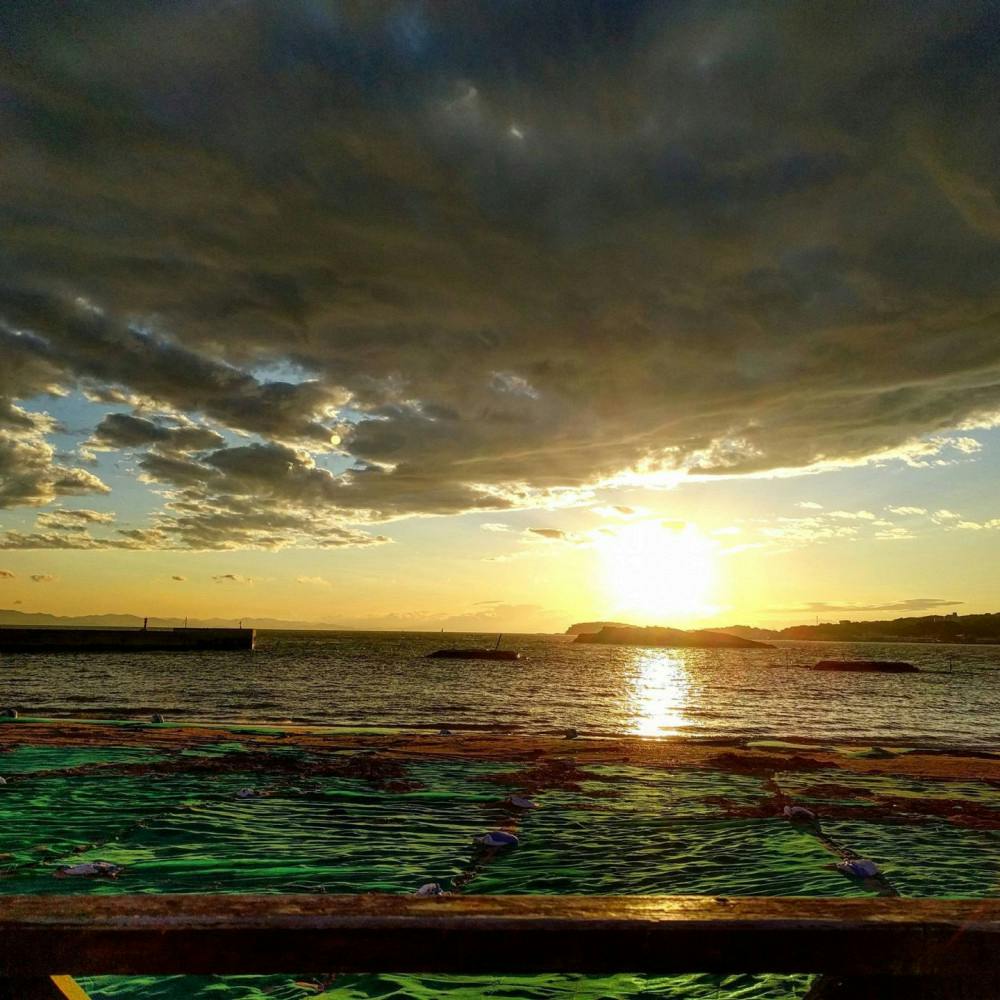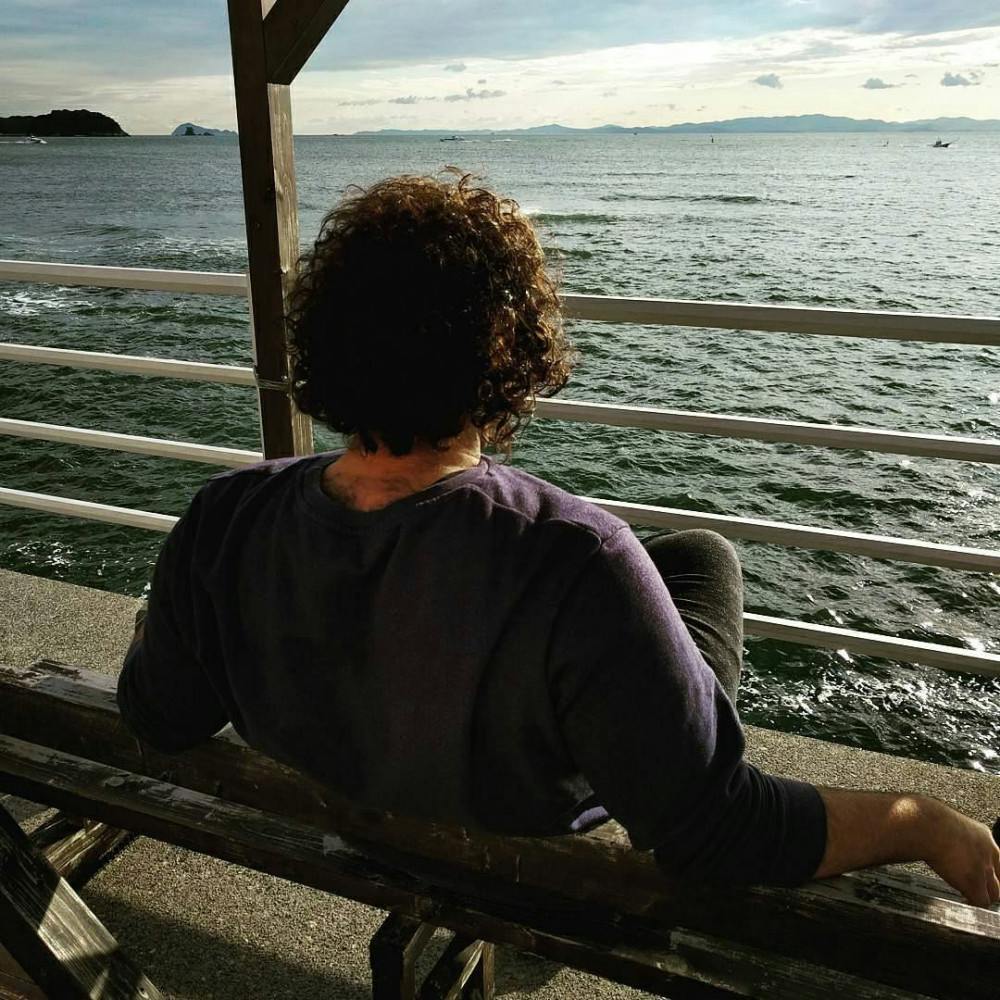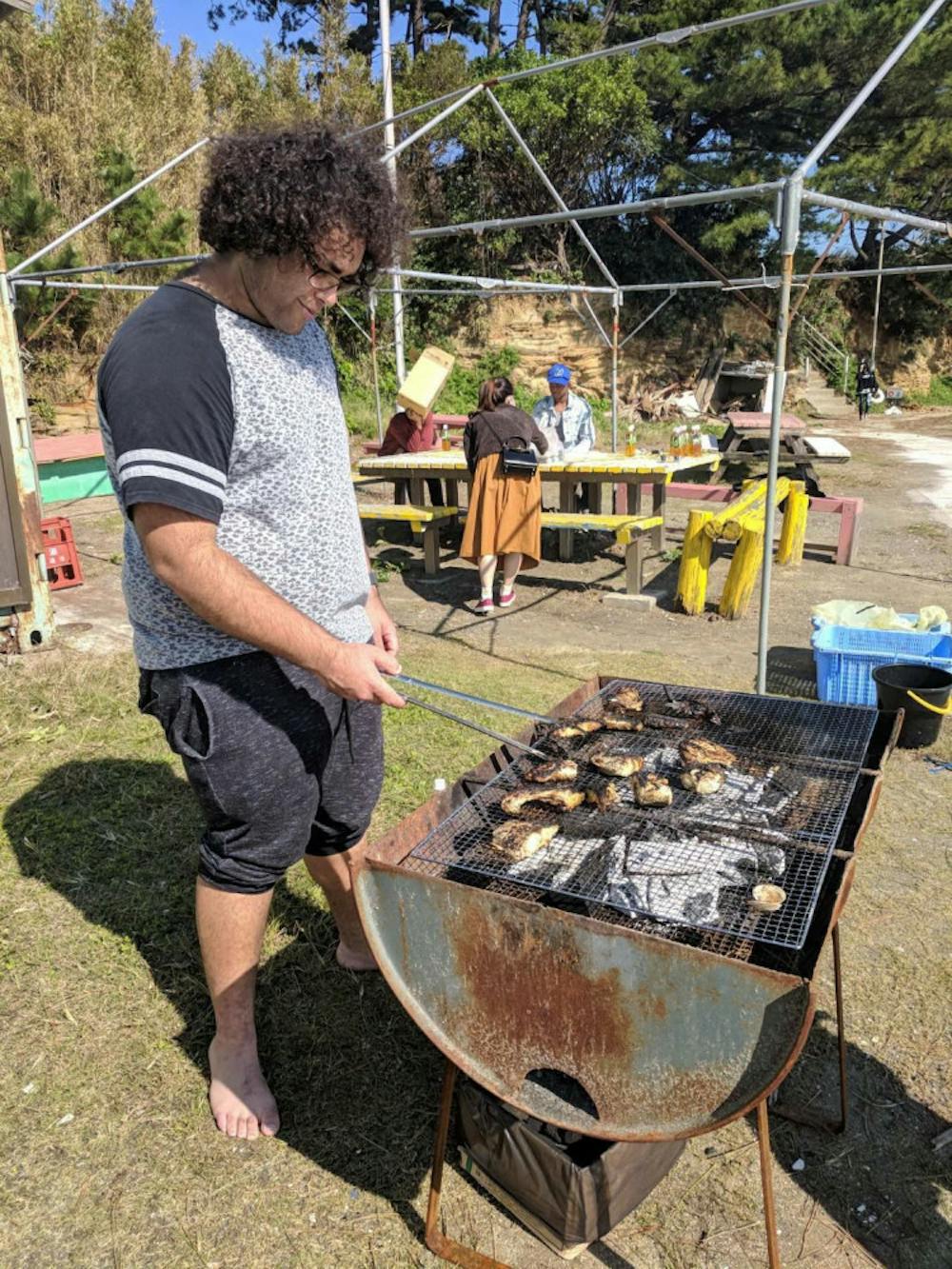This past week, I spent a couple days on an island off the coast of Japan called Himakajima, which is a small, fishing-island community of a few hundred people, famous for their octopus—or “tako†in Japanese. So famous, in fact, that they incorporated it into everything from art to architecture on the island.Â
My program mates and I spent our few days walking around the island, enjoying the complimentary “onsen†(Japanese for group hot bath) and simply basking in the beauty that surrounded us.Â
We had the opportunity to explore a life unlike the ones we came from. In this community, if you want to eat something, you need to catch it, because there’s not much available on the island outside of the convenience store located in the island’s center, and it is closed after 4 p.m.Â
We had the chance to actually catch our own meal using the same net-fishing technique employed by the island for generations. We cleaned and prepared the fish for cooking, and I personally had the chance to grill our “gift from the ocean†for an hour, feeding over 30 people with it.Â

Alexander Graham, a Japanese and ESL junior from the University of Memphis, grills “gifts from the ocean” on an island off the coast of Japan. This is his second installment of “Tigers studying abroad,” a column series updating The Daily Helmsman’s readers on Memphis students’ lives in foreign lands.
In Japan, there’s a cultural understanding that everything around you—trees, stones, animals—is imbued with inseparable, natural spirits called “kami.†These kami have been here long before the current generation and will be here long after we’re gone. Because of this, our hosts showed great reverence to our meal and encouraged us to do the same, as the fish were sacrificed in order to sustain our lives.
For two hours, I stared at the ocean, finding myself completely overwhelmed by the sight and my experience on this island, resulting in an existential crisis—“what does it all mean?â€Â

While I didn’t find the answer I had hoped to find, the ocean beckoned me to continue exploring the world around me until I found it. But until then, I made my way to the west side of the beach to watch the sun set beneath the horizon with my mates.Â
The sky was painted with reds and purples, and the ocean was as limitless as the stars that began to emerge from the brilliant tapestry overhead. Perhaps in this void, this lack of an answer, the ocean was really giving me an answer after all: that there is no singular answer. The meaning of life is actually limitless, allowing me to forge the path that’s best for me; and after my time on the small island of Himakajima; I’ve never felt more alive.

Â







